As posted on the FosterEDU blog
Economists celebrate the market’s return to stability with pomp and circumstance as headlines boast continued economic uprise. If your business is partaking in the festivities, don’t let the hype blind you from seeing the true value of your company’s future. Though increased spending and consumer confidence are integral cogs in the wheel of profitability, your employees are the key to keep it going. Overlooking employee satisfaction could cost your company millions in lost profits as the labor market improves. With the average employee turnover rate predicted to rise to 23.4 percent from 20.6 percent, your organization could be at risk of losing valuable staff.1
From hiring expenses and time spent screening and interviewing candidates, the projected mass exodus of star talent could cause your organization to fall behind on market gains, creating a revolving door of failed recruitment. Yesterday’s measures of workplace sustainability no longer suffice. Old go-to’s like annual raises, paid time off, and elevated job titles fall short of employee motivators. Instead, workers seek fulfillment of inherent values including loyalty, culture, and self-worth. Safeguard your organization’s future by securing star talent and tapping into their potential through continued education and development.
Low-Wage, High Cost
Today’s low-wage job sector, notorious for high turnover rates, consists of 1.85 million more hourly workers than at the start of the recession.2 In the midst of economic hardship, companies opted for cost-saving tactics, offering minimal wages and benefits in efforts to lower costs. To compensate for high turnover rates, companies streamlined the hiring and training process for quick job adaptation, creating dispensable positions rather than investing in employee retention. Retail, food service, and customer service industries (among others) fall subject to these practices causing upwards of twice an employee’s salary to find and train a replacement.
Cultivating a more educated workforce among low-wage employees can save companies significant amounts of time and money while increasing consumer loyalty through social goodwill. Companies like Starbucks, for example, are leading the trends by turning to online education to provide their employees with flexible, economical workforce training.
For the three in ten low-wage workers who are high school dropouts,3 investing in high school completion programs to re-educate employees translates into huge savings by preventing costly lay-offs and reducing turnover by an impressive 40 percent. Additionally, in the eyes of today’s socially conscious customers, your organization becomes the model of corporate social responsibility.
Entry-Level and Unmotivated
Unhappiness among workers in America is costing a shocking $300 billion per year in lost productivity.4 A positive work environment is essential for workplace satisfaction. In entry level positions, where high turnover is rampant, office moral is linked to the amount of meaningful recognition and application of skill sets. More than financial gain, workers value a genuine interest in their continued success within an organization. A survey conducted by the American Management Association (AMA), employee development issues were of top importance for employees and helped to improve retention.5 By offering educational opportunities, you enable your workers to both serve you better in their current positions while also grooming them as skilled candidates for other positions within the company. Employees will begin to value the organization as their own rather than as a short-term detour on their professional path.
More than Financial Gain
Being a great place to work is linked to outstanding business results. Employees, particularly of the millennial generation,6 seek a purpose bigger than a paycheck. Motivation, inspiration, and most of all, support of personal developmental growth through advancement. Looking out for your employees’ best interest begins with gaining genuine insight on their long-term goals. Coupling ambitions with relevant education, such as skills-relevant assignments, training, or continued higher education sets the stage for employee loyalty and integrity.
If opportunities like tuition reimbursement, high school completion, or on-site training is not in the budget, consider other forms of employee development. Education takes shape in many forms. As an example, you can appoint senior staff to teach company-specific skills to the rest of your organization. Perhaps implementing a mentor program can give novice and seasoned workers opportunities to learn from each other. Any way to show your workers their continued growth is encouraged will be of value to the organization.
Promoting employee training, development, and education is your organization’s ticket out of the predicted downturn. With rewards of increased productivity and contribution, encouraging advancement within the company sets up your organization for future success.
